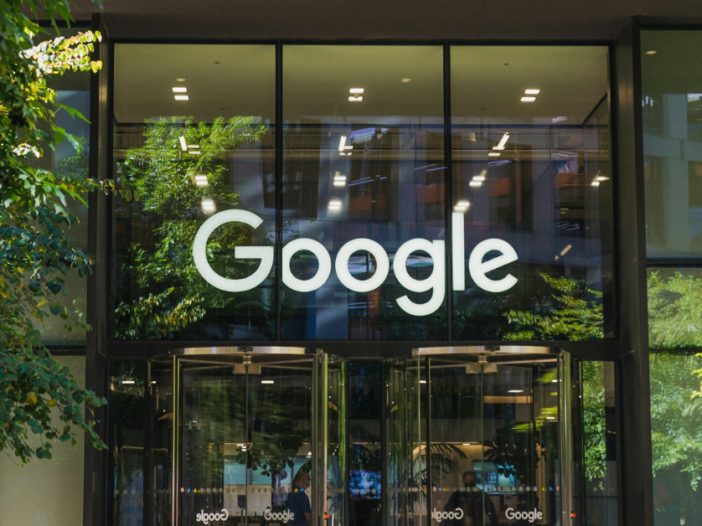Join us as we share insights from the top SEOs at the world’s largest traffic-driving websites. Instead of guesswork, you’ll discover how to leverage real data to align your team and fast-track growth with five proven and actionable tactics you can implement immediately.
Discover the latest trends, tips, and strategies in SEO and PPC marketing. Our curated articles offer in-depth analysis, practical advice, and actionable insights to elevate your digital marketing efforts.
In this guide, industry experts explore the challenges and opportunities presented by the onslaught of AI tools, and provide actionable tips for thriving amid these shifts.
Discover the latest trends, tips, and strategies in SEO and PPC marketing. Our curated articles offer in-depth analysis, practical advice, and actionable insights to elevate your digital marketing efforts.
Join three of Reddit’s top executives in this exclusive AMA (Ask Me Anything) to discover how you can tap into Reddit’s unique platform to drive brand growth.
Join this leadership discussion for proven techniques to build long-term relationships and keep your clients coming back.
Technical SEO basics and high-quality, helpful content should come before chasing SEO trends, say Google’s Search Relations team.
In search engine optimization (SEO), where the focus often swings toward the latest trends and advanced tactics, Google’s Search Off The Record podcast team recently reminded everyone to get the basics right first.
Martin Splitt, Gary Illyes, and John Mueller of Google’s Search Relations team explained that many websites still need help with basic technical SEO issues like site crawlability, indexing, and page rendering.
These foundational factors directly impact a site’s performance in search results. As such, they should be addressed before less critical optimizations.
Technical SEO involves optimizing a website’s architecture and infrastructure to improve crawling and indexing by search engines.
Unlike content creation or promotion, technical SEO focuses solely on the behind-the-scenes elements of a site.
Illyes explains why he often posts on social media about technical SEO:
“I like to post about technical things…because every now and then we notice that big site owners or big site SEOs will miss critical basic things.”
Illyes described his observations from conferences where attendees were captivated by the ‘next big thing.’
He argued:
“Just make sure your content is good first… looking at these websites that people put there, they are not helpful or useful to me as a user trying to find things.”
Further, he underlined the significance of technical aspects in SEO, saying:
“If Googlebot cannot reach your site, or rendering fails miserably, or there are no tokens (words) on the site or a page, then there’s not that much that Google can do for you.”
Splitt agreed, stating technical SEO “is still important – it’s like all of those basics.” He suggested troubleshooting with a site’s homepage, as search engines view this as the most vital page.
When these technical aspects are neglected, it may lead to critical issues, such as rendering failures or inaccessible sites, which can severely affect a website’s performance in search engine rankings.
[Recommended Read] → SEO Trends 2024
Another key discussion point was the evaluation of content and the common misperception that high traffic equates to high-quality pages.
Mueller cautioned relying solely on analytics without considering user experience:
“I sometimes feel it’s misleading to just purely focus on the traffic.”
He recounted an example of a site ranking well for generic keywords but providing little value to users. When traffic from those low-quality keywords declined, the aggregate stats looked concerning – but the loss was irrelevant.
The hosts emphasized that metrics beyond traffic, such as user engagement and satisfaction, are more accurate indicators of a page’s usefulness and quality.
Mueller states:
“You almost need to look at the bigger picture of all of the traffic that’s gone, but also keep in mind… a lot of this was useless.”
He encourages focusing on relevant queries and tracking lower-level pages to understand a site’s performance better.
It’s not enough to churn out a high content volume; the content must serve a purpose and provide value to its intended audience.
However, Illyes suggests that creating high-quality content might be more straightforward than most people think.
The key is to focus on what will help people achieve their goals when they visit the page. This could mean providing comprehensive answers to common questions, solving problems, or sharing engaging and entertaining stories.
Illyes states:
“What if quality is actually simpler than most people think? What if it’s about writing the thing that will help people achieve whatever they need to achieve when they come to the page?”
[SEO Trends 2024] Download the free ebook →
This discussion between Google’s Search Relations team emphasizes two key takeaways.
First, mastering the basics of technical SEO is essential before delving into advanced tactics. Second, the quality of content and user engagement are more important than mere traffic numbers for evaluating a site’s success.
They advised that websites can significantly improve SEO performance by focusing on these areas.
Featured Image: LCV/Shutterstock
Matt G. Southern, Senior News Writer, has been with Search Engine Journal since 2013. With a bachelor’s degree in communications, …
Conquer your day with daily search marketing news.
Join Our Newsletter.
Get your daily dose of search know-how.
In a world ruled by algorithms, SEJ brings timely, relevant information for SEOs, marketers, and entrepreneurs to optimize and grow their businesses — and careers.
Copyright © 2024 Search Engine Journal. All rights reserved. Published by Alpha Brand Media.
Uncategorized
An old SEO scam has a new AI-generated face – Engadget
Over the years, Engadget has been the target of a common SEO scam, wherein someone claims ownership of an image and demands a link back to a particular website. A lot of other websites would tell you the same thing, but now the scammers are making their fake DMCA takedown notices and threats of legal action look more legit with the help of easily accessible AI tools.
According to a report by 404Media, the publisher of the website Tedium received a "copyright infringement notice" via email from a law firm called Commonwealth Legal last week. Like older, similar attempts at duping the recipient, the sender said they're reaching out "in relation to an image" connected to their client. In this case, the sender demanded the addition of a "visible and clickable link" to a website called "tech4gods" underneath the photo that was allegedly stolen.
Since Tedium actually used a photo from a royalty-free provider, the publisher looked into the demand, found the law firm's website, and upon closer inspection, realized that the images of its lawyers were generated by AI. As 404Media notes, the images of the lawyers had vacant looks in the eyes that's commonly seen in photos created by AI tools. If you do a reverse image search on them, you'll get results from a website with the URL generated.photos, which uses artificial intelligence to make "unique, worry-free model photos… from scratch." The publisher also found that the law firm's listed address that's supposed to be on the fourth floor of a building points to a one-floor structure on Google Street View. The owner of tech4gods said he had nothing to do with the scam but admitted that he used to buy backlinks for his website.
This is but one example of how bad actors can use AI tools to fool and scam people, and we have to be more vigilant as instances like this will just likely keep on growing. Reverse image search engines are your friend, but they may not be infallible and may not always help. Deepfakes, for instance, have become a big problem in recent years, as bad actors continue to use them to create convincing videos and audio not just to scam people, but also to spread misinformation online.
The Harris/Walz campaign has its own map in Fortnite called Freedom Town, USA.
Bart and Homer will square off on December 9 for a special Simpsons Funday Football game on Disney+ and ESPN+.
X says it has “re-architected” the scoring system that powers Community Notes so that the user-generated fact checks can now appear less than 20 minutes after a post is published on its platform.
Game studio Enhance is celebrating its tenth anniversary and marking the occasion with two limited run box sets that showcase the art and audio of its creative titles.
ProtonVPN is on sale for 70 percent off 24-month subscriptions ($71.76) and 50 percent off 12-month plans ($59.88). This averages $3 monthly for two years and $5 monthly for the single-year option.
Sony has officially killed off Concord and is shuttering the studio behind the game.
Amazon’s AI-powered shopping assistant Rufus launches throughout Europe. It’s still in beta, though should roll out to most users within the next few weeks.
Netflix’s upcoming series Senna spotlights the F1 driver’s journey from São Paulo, Brazil, to international stardom and 41-time Grands Prix winner. Watch the trailer a month before the debut.
Xenoblade Chronicles X: Definitive Edition heads to Switch on March 20. The remake will feature “enhanced visuals, added story elements and more.”
Polestar EV owners now have access to the Tesla Supercharger network in the US and Canada. Future Polestar vehicles will adopt the NACS inlet, while current owners can buy an adapter today.
Xbox feature beta testers can now experience a redesigned home page that unites the Game Pass and Microsoft Store experiences.
The Sony WH-1000XM5 headphones are $100 off right now. That brings the price down to $300.
Lucid's electric Gravity SUV is set to enter production alter this year. The company has revealed pricing and pre-order details.
The Google TV Streamer is a great device, combining speed, an excellent UI and useful smart home control, though a couple of missing features keep it from perfection.
Similar lawsuits have popped up in the US.
NASA just published a new picture of the Phantom Galaxy captured by the James Webb Space Telescope. This new image uses data from two instruments.
Apple introduces the M4 Pro chip, which is available with the new Mac Mini. The SoC also brings Thunderbolt 5 support to the company’s computers.
Apple's new Mac Mini is incredibly small and comes with M4 chips.
Apple's suite of hearing health tools are now available. Here's what it's like to use them.
The Biden administration has been more aggressive than almost any in recent American history in its antitrust efforts. In the tech sector alone, it has ongoing cases against Apple, Meta, Google and Amazon, not to mention its battles with Ticketmaster, Microsoft, Kroger, CVS, Visa, Penguin Random House and more.
Subscribe to our two newsletters:
– A weekly roundup of our favorite tech deals
– A daily dose of the news you need
Please enter a valid email address
Please select a newsletter
By subscribing, you are agreeing to Engadget's Terms and Privacy Policy.
MAMA Awards 2024: SEVENTEEN To Perform, Byeon Woo Seok, Park Seo Joon, Seo In Guk Among Presenters – Times Now
Theme
Entertainment
Bollywood
Box Office
Reviews
TV
Web Series
Hollywood
Korean
Telugu
Tamil
Kannada
Malayalam
Movies
Bollywood
Box Office
Reviews
TV
Web Series
Hollywood
Korean
Telugu
Tamil
Kannada
Malayalam
Movies
Trending:
news
entertainment
korean
Updated Oct 29, 2024, 14:14 IST
MAMA Awards 2024: SEVENTEEN To Perform, Byeon Woo Seok, Park Seo Joon, Seo In Guk, Lee Jun Ho Among Presenters
New Zealand On Cusp Of Another Feat, Invincible India's 24-Year-Old Record On Line In Mumbai Test
WATCH: Cops Lathi-Charge, Threaten To Throw Chair on Lawyers In Ghaziabad Court. Here's What Happened
Hina Khan Calls Herself A 'Desi Girl' In New Transformation Reel – Watch
India Women vs New Zealand Women, 3rd ODI Live Score And Highlights: India Get Early Wickets As Bates, Lauren OUT
Bridgerton's Luke Thompson, Yerin Ha Read An Offer From A Gentleman, Prepare For Masquerade Ball. Watch
12 Unexpected Romantic Lines From Books That Will Make Your Heart Skip a Beat
DYK Salman Rushdie Wanted To Play Amitabh Bachchan’s Role In Katrina Kaif's Debut Film Boom?
The right direction to light diyas this diwali for positive energy
Trending:
A cinema nerd appreciating everything old school, Mimansa loves exploring behind-the-scenes world of movies and its histrionics, be it the black n whi…View More
Tamil Director Cheran Joins The Shoot Of Tovino's Narivetta!
Hina Khan Calls Herself A 'Desi Girl' In New Transformation Reel – Watch
Bridgerton's Luke Thompson, Yerin Ha Read An Offer From A Gentleman, Prepare For Masquerade Ball. Watch
DYK Salman Rushdie Wanted To Play Amitabh Bachchan’s Role In Katrina Kaif's Debut Film Boom?
Delnaaz Irani Makes TV Comeback After 2 Years
Follow us :
© 2024 Bennett, Coleman & Company Limited
30 Ways to Grow Your SEO Skills for Free (or Close to It) – JumpFly PPC Advertising News
30 Ways to Grow Your SEO Skills for Free (or Close to It) JumpFly PPC Advertising News
source
Sami Kurvinen: How Google killed our business (for now!) – NEXT.io
Summits
Elite Retreats
Podcasts
Other Projects
About
By NEXT.io – 10 May, 2024
He shares his insights with NEXT.io and what possibly can be done to bounce back. Sami also explains how these recent changes affect affiliates’ ongoing relationships with iGaming operators.
Imagine waking up one day and seeing your store burned down to the ground or realising that it has suddenly disappeared from the earth’s surface overnight and is no longer to be found where it once used to stand.
Anyone’s business affected by the recent global Covid-19 pandemic can also relate to this feeling.
This is also the new reality for business owners like myself and my business partners, who have been hit by the ongoing Google core updates as our websites are no longer to be found on Google’s search engine.
This is a disastrous blow to any business that relies on Google’s search engine, which has a 90% market share in the European search market.
We, as business owners, can cry about it, be angry, feel desperate, and feel that Google and the world are unfair. However, in the end, we are left with two choices:
· Option A: Give up.
· Option B: Do something about it.
Google has two main objectives:
· Earn money through its paid ad search service.
· Provide the world with the best search engine.
In Google’s quest to improve its search engine, Google continuously releases major updates to its algorithms, with the final goal of giving users better search results.
During these ongoing updates, starting in October 2023 and again in March 2024, Google has turned up the heat even more than usual.
With the introduction of AI, the internet has been flooded with content of various qualities, and Google needs to act before it’s too late. The target of these recent updates has been to clean up and remove low-quality content from its search service together with websites that offer players unhelpful content and focus more on sales than helping visitors.
There is even more to it, but you get an idea. The aim is to improve search, but what if your sites are affected and you disagree with being a spammy or low-quality site?
You want to succeed and create a successful business that helps players and offers them value, but you end up feeling like a failure. What’s even more frustrating is that it’s outside your control.
OR is it?
You may think and truly believe that you are bringing something new and valuable to the industry and players through great content, but if Google doesn’t agree, then you are screwed.
Years of hard work and time invested are gone, but is it your own fault? Did Google kill our business, or did we bring this to ourselves?
The thing is that in reality, our businesses aren’t technically dead but (hopefully) temporarily put in an unwanted section, like professional football players who are sent to the stands to watch the game from the sidelines instead of participating in the game.
· Is this fair? – No
· Can you complain to Google? – No
· Can you do something about it? – Maybe
If you really believe that your site is relevant and brings unique and helpful content to players, then you need to act and do something about this.
· Analyse your site.
· Compare what leading competitors do on their websites and how you can do it better.
· How can you improve things?
· What needs to be improved?
· Listen to SEO podcasts and learn from SEO experts by reading their opinions.
· Read everything that Google shares and try to understand their viewpoint.
· If possible, discuss with SEO companies that can give you some insights and help you.
· Most importantly, understand why your site has been placed in the unwanted bracket and figure out what you can improve to change this.
Will our websites be relevant one day and bring value to players and casino operators? We believe and hope so, but how do you know?
In the end, you need to decide if what you do brings unique value to visitors, and if this requirement can’t be met, it’s time to do something else.
Some operators aim to cut costs and stop legacy revenue share deals that no longer bring new value but only cost money.
This is done by adding new clauses to the affiliate agreements where the marketing partners are forced to meet certain requirements by bringing x number of First Depositing Customers (FTDs) per month or quarter.
However, if your entire business is put in quarantine, it will be nearly impossible to meet those requirements for some time.
There should be a discussion about some changes needed in this new environment where many websites are affected by these recent Google algorithm updates and instead look at affiliates on a case-by-case basis.
Small (or currently non-existent) affiliates can still grow and become partners of significant size one day. Decisions made in difficult times like this will affect who these affiliates will cooperate with in the future.
People often ask me if they should focus on the iGaming affiliate niche. My advice is that if you don’t have anything new or real value to bring to the table, then look at something else to do as this is brutal and extremely difficult in 2024.
Similar posts
Follow us
Linkedin
Youtube
Twitter
Instagram
Facebook
Spotify
Telegram
Share this post
Share the link via
Facebook
Telegram
WhatsApp
X.com
LinkedIn
Or copy the link
A content-driven events, media and publishing company that delivers news and insight to investors and iGaming professionals.
What we do
About us
Beyong the Algorithm – Decoding the Macrotrends that are Shaping the Future of SEO – Kantar
Explore the many areas where Kantar will help your organisation to succeed, through a deeper understanding of people.
Find growth, inspiration and a deeper understanding of people, within your industry or sector.
Read our latest articles, reports and insights from the UK and Ireland.
A year of splintered viewing habits, soaring costs, technological innovations, tightened data privacy and increased sustainability efforts
Head of Digital Content, Kantar Analytics, UKI
Since its emergence, the purpose of SEO has seemed straightforward: ensure your website ranks well on search engines, and your traffic will follow. The higher you rank, the better your visibility, and the lower the cost of acquisition. To achieve this, it’s been a must for the industry to keep up with Google’s evolving algorithm and updates to its search results pages.
But with advancements in AI automation, search marketing has entered a new era. One where the lines between sponsored and organic results are blurred, and the rules are far more complex.
With Google and the search industry in constant flux from changes that affect how brands advertise on and how users interact with search platforms, new strategies are needed. We tapped into the industry’s hive mind to understand what brands need to do to keep up with, and ideally ahead of this evolution.
We identified key industry opinion leaders and analysed over 16,000 of their mentions on social channels, journals and publications from the past two years to determine the macrotrends impacting the future of SEO. Along with our findings, we suggested actions for marketers to navigate these future SEO trends, organising them across the six different lenses of the STEEPe framework – Social, Technological, Economic, Environmental, Political, and Ethical.
The social perspective of search is manifested in the evolution of user behaviour, digital trends, and cultural shifts. It concerns just under 10% of the analysed mentions.
With the rapid expansion of platforms such as TikTok and ChatGPT, and the rise of social shopping on Instagram and Pinterest, Google is seeing its dominance challenged. As a result, it has begun to evolve the traditional search journey, with future SEO trends likely to be more experiential.
The search path for users is no longer linear: search with text, scroll down until you find a suitable answer, and click to follow the link to a website. Now, users can be more specific in their searches and ask their questions with images, voice, and even screenshots. Google is in turn trying to make those experiences frictionless; providing results in a variety of formats and allowing users to obtain their answers directly from the search results page itself with the marriage of AI and SEO.
This diversification of search results formats means it is not enough for brands to have well-written and well-optimised landing pages endorsed by experts to obtain visibility. Instead, there is a need for a variety of multimedia assets to be present in a wider digital ecosystem.
Neil Patel articulated this aspect of our analysis in this quote, “as habits evolve, so must content, intent mapping and, ultimately, the measurement of SEO impact in order to further grow”.
Roughly, two thirds of the conversation about search marketing concerns the future of AI and machine learning. The World Economic Forum projected that “AI will create 97 million new roles by 2025 in areas like content creation, AI development/testing, and AI maintenance”.
Within the search industry, the perspectives on the opportunities of AI automation range: academics Ziakis and Vlacholopoulou are quite positive about the future and AI, believing that “AI-powered SEO heralds a new era of precision and that AI in SEO paves the way for more targeted SEO campaigns that attract more organic visits to business websites”. At the other end of the spectrum, opinion leaders like Travis Tallent, VP of BrainLabs, question whether AI automation will render SEO obsolete.
Through our analysis, we found that the uses and benefits of AI, especially for content creation, are vast. Generative AI offers the opportunity to produce content at a high volume.
But, despite these undeniable benefits, there is a potential disadvantage to SEO writing with AI: that you risk it becoming commoditised and inauthentic.
AI-generated content may sound good and meet the standards, but does it actually reach users in a meaningful way? Does it have the same authenticity that a human-generated piece of content has?
For years, Google has been challenging the SEO industry on these very aspects of content quality – demanding that content adds value to users rather than be produced just to meet the search engine’s own standards.
The challenge for SEO professionals is clear: while AI can help with scale, the north star for brands should always be the user. The future of SEO demands that content be designed to resonate with users, and not just to rank well or meet the search standard.
The economic aspect of search contributes to around 15% of the mentions by key experts. The conversation is focused on the economic strain on small businesses, demonstrating ROI, and keeping costs low while adapting to change. This may lead to a paradigm shift where brands reconsider the value of SEO.
Gartner predicted that “by 2028, brands will see their organic site traffic decrease by 50% or more as consumers embrace GenAI-powered search”. With Google launching Search Generative Experience (SGE), the time for zero clicks search is here and the likelihood of this happening is no longer far-fetched. These kinds of changes pose ROI pressures for brands and businesses, and an immediate call to rethink how they’re measuring SEO value.
Yet, even as AI automation continues to rise, Google’s business model is still concerned with the visibility of brands. Trying to stay present in this evolving landscape is a battle, especially when the effort needed to stay relevant puts pressure on resources and quality. Search Engine Land reported that Google has begun to blur the line between sponsored and organic results, indicating that this would require advertisers to adjust their strategies and potentially rethink investing in long-term SEO.
As we posed earlier, brands may see AI automation as the answer to creating content that grants visibility, but there is still an underlying caution about the risks. The search industry must reconsider their role in marketing, observing that their objective is to craft positive associations of the brand and, in doing so, predispose consumers to buy them.
Content must first fully capture the heart of your brand, ensuring that the experience it delivers is meaningful, different and salient. This is ultimately what Google is still focused on, as noted in their latest core update.
So, the answer to cost visibility may lie in brand power. Brands are valuable assets and search professionals must support building them rather than putting them at risk with repetitive and formulaic website content.
The environmental aspect of the SEO landscape isn’t a major conversation – contributing only 1% of the comments. We found some early inclination towards green hosting, such as conscious browsers and search engines, which may emphasise the need for environmentally responsible AI, the promotion of eco-friendly practices across the industry, and the reduction of our digital carbon footprint. However, this is not a major concern for search professionals or brands.
The political perspective only contributed to around 2% of the conversation with a focus on transparency from Google, and the growing risk of misinformation online.
With regards to transparency, there are calls for Google to be more open about their algorithm and practices. While this would help search marketers understand how to rank well, complete transparency from search engines may challenge their innovation.
In that same vein, there is some commentary on misinformation and how Google needs to contribute to the fight against it. In July 2024, Google announced an algorithm update designed to combat deep-fakes, allowing swifter content removal processes, and demoting offending sites. Yet, there’s a concern that more must be done – especially as AI and SEO continue to be linked. AI Overviews may serve users with instantaneous replies, but there’s a call for those replies to be properly validated to prevent the spread of misinformation.
Ultimately, the issues with misinformation, regulation, and innovation return to the conversation about content quality. For brands, there is a social responsibility to be informative and accurate in the content they create, and this practice should encourage them to think of content quality and optimisation beyond the standards of search engines.
The final theme of our STEEPe framework is focused on Ethics and drives 6% of the analysed mentions. Here, industry leaders reach consensus on ethical SEO and content authenticity. The themes that arose from these conversations were focused on how brands should maintain user trust.
In a Moz blog post, Chima Mmeje highlighted that low-quality content can erode trust, leading users to seek out brands who produce content that is more reliable and has more authoritative information. For brands and SEO professionals, this means focusing on connecting the brand services or products with users via meaningful content which is relevant to their intent.
Balancing trust, as much as the cost of visibility, is a challenge that the search industry should address by focusing on the user and the seamless experiences that Google is striving to deliver. It suggests that optimisation should go beyond search gold standards and brand power and seek to address misinformation while being mindful and empathetic towards the emotions and time which users invest in consuming branded content.
Search marketing, as we know it, is undergoing a transformation shaped by many considerations: the shifting culture of user behaviour, the future of AI and SEO, increased economic pressures, new ethical considerations, and strict political regulations.
In this ever-evolving landscape, marketers must prioritise creating seamless user experiences, with empathy, across all channels, rather than solely focusing on achieving high rankings in search engine results. The value of SEO has never been more critical, or more complex.





